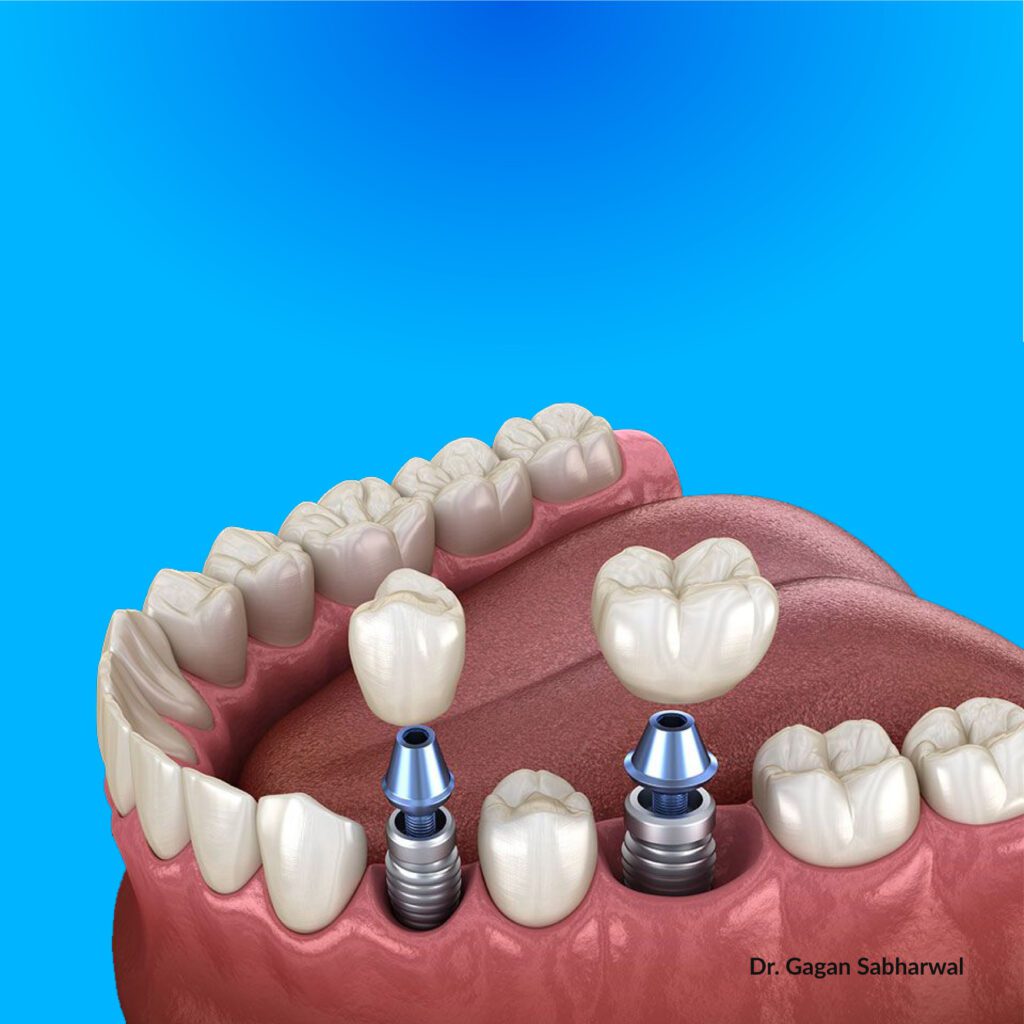Dental implants are part of restorative dentistry and are used to fix missing teeth permanently. The best dental implant Sharjah surgeons make use of state-of-the-art equipment to improve the results of different procedures such as bone grafting for dental implants. While improved technology has facilitated excellent results, more innovation is necessary due to more complicated cases, increased integration, and improved healing mechanisms to provide the finest and durable dental care for patients.

Material Innovations
During a dental implant consultation in the UAE, patients are also informed about the new materials for the implant. Advanced titanium alloys and ceramics, such as Ti-Pol and Zirpol, respectively, have been developed which allow for faster healing and better bone integration . Thus, the application of those new materials changes the quality and options of implants used in dental restoration.
- Zirconia Implants: Dental implant specialists in the UAE recommend zirconia for its hypoallergenic properties and low infection risk.
- Titanium Alloys: Praised by dental implant specialists in the UAE for their strength and biocompatibility, reducing complications.
- PEEK (Polyether Ether Ketone): A favorite among dental implant specialists in the UAE for its durability and biocompatibility, improving long-term outcomes.
3D Printing Advancements
Another innovation that patients learn about during a dental implant consultation UAE is how 3D printing is changing the dental sector. As a result, dental implants may be matched more perfectly to the distinct topology of a patient’s mouth using sophisticated planning software. As a result, the manufacturing time is substantially reduced and the precision increased meaning that no implants will fit flawlessly. It also increases the level of care, with patients being able to receive better and less invasive medical procedures.
AI and Machine Learning
The planning processes of dental implant procedures are digitally revolutionized by AI. The dental implant specialists UAE outline how specialists can predict the outcomes through AI and plan personal experiences for every surgical part . As a result, the integration of AI with robotic surgery improves the placement process, ensuring each implant is placed correctly for functionality and beauty . Therefore, the collaborations of AI with surgical specialists enhance patient experiences and their satisfaction.
Regenerative Techniques
State-of-the-art research on regenerative medicine has also been advocated by the finest dental implant surgeons in Sharjah . It incorporates the use of stem cells to regenerate bone and gum tissue around implants. This innovation in implant dentistry could significantly alter implant processes. For starters, it decreases the invasiveness of the procedure and allows for proper integration with natural tissue. As a result, healing would be much smoother, and general implant success will be taken to major heights, ushering new expectations in patient comfort and post-treatment .
Smart Implants
The recent development of ‘smart’ dental implants has improved patient experience by introducing sensors that track and measure essential health factors such as bone growth and premature infection or rejection indicators. Embedded with Internet of Things technology, these sensors continuously monitor the patient’s progress and offer real-time reports, which grants the ability to make in-time susceptible treatment modifications. In addition to enhanced efficacy of these implants, from now on, patients are guaranteed full safety, given that it is now possible to prevent multiple complications resulting from the implanted technology. Thus, the patient-authenticated treatment era has begun.
Cost and Accessibility
New technology, such as bone grafting for dental implants and smart sensors, will affect the economic aspects of dental care . At first, they will make the cost of implant procedures expensive because of the materials and sophisticated technologies involved. Presently, the major determinant of cost remains negligible because of the current constricted client market. In the future, economies of scale will ensure that the cost of producing these materials and cars decreases, leading to a global reduction in cost. Therefore, such technology might make high-quality care for more people in the world prevalent.

Ethical and Regulatory Considerations
The introduction of new medical technologies, such as advanced dental implants, presents a number of challenging ethical considerations. The development of such technologies requires a complex system of regulatory approvals, which are predicated on the results of numerous clinical trials . Regulatory bodies like the Food and Drug Administration or the European Medicines Agency require that manufacturers provide extensive data on clinical effects and proven compliance with all accepted medical norms . This is done to protect patients and ensure that new innovations in health care are providing all the promised advancements while adhering to ethical principles.
Future Outlook
- Enhanced Precision: Upcoming technologies will allow for more accurate implant placements and tailored treatments.
- Faster Healing: Innovations like improved biomaterials and stem cell therapies will speed up recovery times.
- Increased Accessibility: Advances in manufacturing and technology could lower costs, making high-quality dental care more accessible globally.
- Improved Outcomes: Smart implants and AI-driven diagnostics are set to improve long-term success rates of dental treatments.
- Less Invasive Procedures: New techniques in regenerative medicine and robotics will minimize the invasiveness of dental surgeries.
Conclusion
Technological innovations such as AI, smart implants, regenerative techniques, and other developments are fast evolving and will become mainstream in dentistry over the next decade, if they are not already. Many of these innovations have revolutionized traditional dental treatments, offering a degree of precision that has not been possible before. Many of the new technologies are likely to become standard tools in dental surgeries in the coming years, significantly improving patient experience and outcomes.
Stay informed about the latest in dental technology and discuss these emerging options with your dental care provider. For more insights and expert advice, visit Dr. Gagan Sabharwal‘s website. Embrace the future of dentistry today and explore the possibilities that new technologies bring to your dental health.



